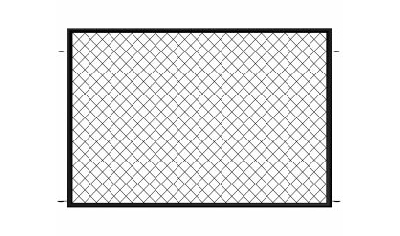field fence for sheep
أكتوبر . 06, 2024 07:09
The Importance of Field Fencing for Sheep A Comprehensive Guide
In the world of livestock management, maintaining the safety and well-being of animals is a top priority for farmers and sheep herders. One of the most crucial elements in achieving this goal is the use of field fencing designed specifically for sheep. This article will explore the importance of effective fencing, the types available, best practices for installation, and maintenance tips to ensure longevity and effectiveness.
Why Sheep Fencing is Essential
Sheep are naturally curious and social animals, often exploring their environment. Without proper fencing, they can wander off into unsafe areas, risking injury or becoming lost. Additionally, protective fencing serves to keep out predators such as dogs, coyotes, or other wildlife that may pose a threat to the flock. A well-constructed fence not only secures the sheep but also promotes efficient grazing management by preventing overgrazing in certain areas, thus supporting a healthier pasture ecosystem.
Types of Fencing for Sheep
When considering field fencing for sheep, several options are available, each with its advantages and disadvantages
1. Barbed Wire Fencing While common in many agricultural settings, barbed wire is not an ideal choice for sheep. The sharp barbs can injure the animals, making this a less favorable choice.
2. Woven Wire Fencing This type of fencing is particularly popular among sheep farmers. Woven wire fences consist of vertical and horizontal wires twisted together, creating a strong barrier that sheep cannot easily escape while being effective against predators. The height and gauge of the wire can be adjusted depending on the specific needs of the flock.
3. Electric Fencing Electric fencing has gained popularity due to its versatility and ability to establish boundaries without obstructing views. It can be particularly effective in keeping sheep within designated grazing areas and deterring predators. However, caution must be exercised to ensure the fence is well-maintained to prevent the risk of malfunction.
4. Post and Rail Fencing Although aesthetically pleasing and durable, post and rail fencing may not be the most cost-effective option for large areas. This type of fencing is often used in situations where aesthetics matter more than utility.
Best Practices for Installation
When installing sheep fencing, certain best practices should be followed to ensure a durable and functional barrier
field fence for sheep

- Select the Right Location Choose a well-drained area free of dense brush or trees that could damage the fence over time. Clear the ground to ensure the space is free from rocks and debris.
- Determine Fence Height and Depth Sheep are known for their jumping ability. A fence height of at least 4 to 5 feet is advisable, while the bottom of the fence should be buried a few inches underground to prevent them from digging under.
- Post Placement Use sturdy, treated wood or metal posts spaced at regular intervals (typically 8 to 12 feet apart) to provide adequate support for the fence material. Corner and end posts should be anchored more deeply.
- Tensioning Woven Wire Ensure that woven wire is tightly tensioned when installing to maintain its integrity and strength over time.
Maintenance Tips
Once you have installed sheep fencing, regular maintenance is vital to ensure its continued effectiveness
- Regular Inspections Periodically check for any signs of wear, rust, or damage. Address any issues immediately to prevent them from escalating.
- Clear Vegetation Maintain the perimeter by keeping it clear of bushes and weeds that might compromise the fence’s structure or provide cover for predators.
- Monitor Electric Fences Regularly test electric fences to ensure they are functioning correctly. Consider using a voltage tester to check for sufficient electric flow.
Conclusion
Effective field fencing is an integral aspect of sheep husbandry. By investing in the right type of fencing and adhering to best practices in installation and maintenance, farmers can ensure the safety and security of their flock, contributing to a more productive and harmonious farming environment. A secure field not only protects the sheep but also enhances their quality of life, illustrating the significant role that proper fencing plays in successful sheep management.




















